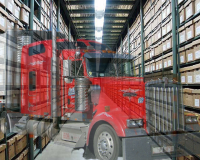
Josh has focused his last 15+ years on document retrieval. His career has been diverse and he has managed organizations targeting retrieval of many record types including, but not limited to, tax credits & incentives, DOT licensing & permitting, driver safety records, and medical records. National Record Retrieval is a company with a primary focus on medical records, but has the ability to obtain any type of records needed to support the legal community.
301 E. Carmel Drive E800
Carmel, IN 46032
Ph.- 317-640-2438








